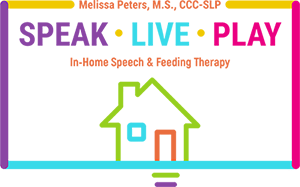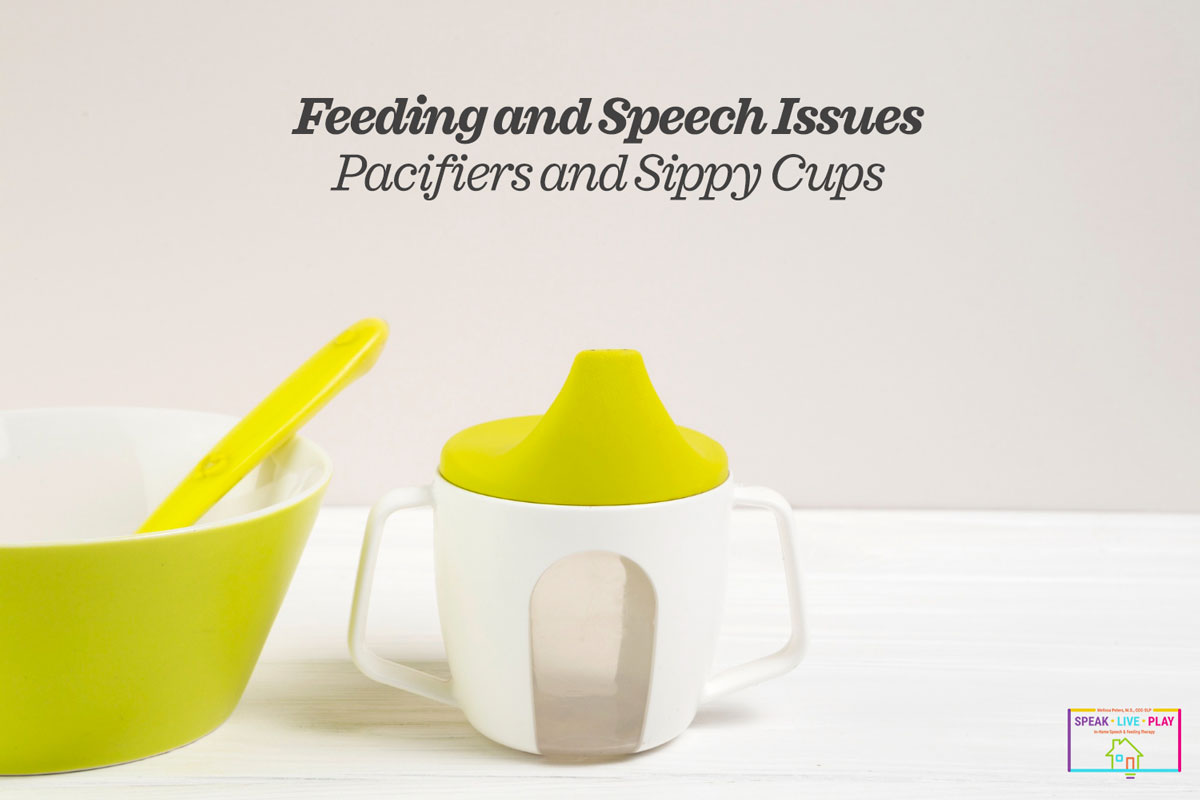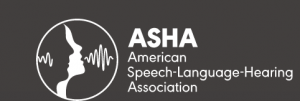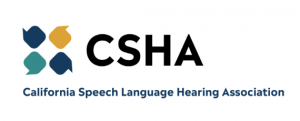Sippy cups and pacifiers are familiar aids many children use throughout early childhood. Both soothe infants, encourage independence, and facilitate meal times with ease. But for some children, prolonged use of sippy cups and pacifiers can cause some difficulties with eating and speaking development. At Speak Live Play, we feel that it is important to know about these effects because they can play a role in proper eating, speaking, and swallowing from infancy through young adulthood.
In this article, we’re going to discuss how sippy cups and pacifiers influence speech development, how to look for signs, and how early intervention through eating therapy, food therapy, and swallow therapy can assist your child’s development.
Effect of Pacifiers on Speech Development
Pacifiers play a critical role during infancy, bringing comfort and filling a sucking need. But long-term or excessive use after infancy disrupts oral motor development. Here’s how.
- Altered Tongue Position: Frequent sucking can force the tongue to move down and forward, which then impacts how children later pronounce sounds such as “t,” “d,” “s,” and “z.”
- Tooth alignment problems: Extended use can cause an open bite or alteration of the dental arch, thereby complicating articulation.
- Delays in Speech: Having a constant pacifier in a child’s mouth hinders the chance to babble, play with sounds, and communicate back and forth.
When to Stop Pacifier Use

Experts advise weaning from pacifiers at about 6 months old and stopping altogether by 12-18 months, if at all possible. Weaning early enables your child’s oral musculature to become well developed, laying the groundwork for more efficient, clearer production of words.
Parents may introduce comfort objects such as a plush toy or a blanket for soothing the baby during weaning. Gradual withdrawal together with positive reinforcement usually results in a smoother weaning process without causing emotional upset.
The Role of Sippy Cups in Feeding and Speech Development
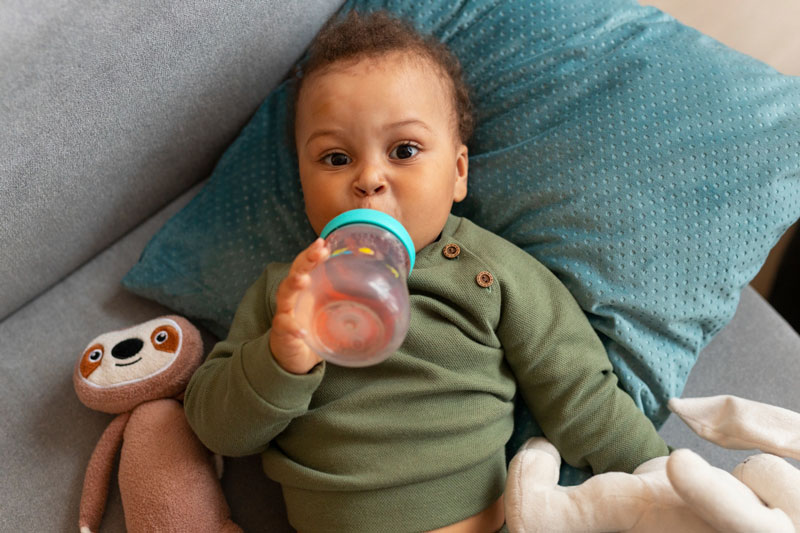
Sippy cups are usually introduced as a “next step” following bottles. Although they are convenient, they can cause unintended feeding and speech problems:
- Sustaining Immature Sucking Patterns: Hard sippy cups can promote an immature suck pattern similar to bottle-feeding that is not conducive to a mature swallow required for eating and speaking.
- Delayed oral motor skill development: Using a sippy cup rather than a straw or open cup prolongs the development of muscle strength for the lips, cheeks, and tongue.
- Risk of Extended Oral Habits: Sippy cup users who use them frequently may become slower to learn the coordination required for eating solid foods and for producing speech sounds.
In Speak Live Play, we typically suggest introducing open cups or straw cups early on within food therapy treatments to aid the development of good oral motor skills.
Selecting the Right Cup
Adding straw cups by 9 months will encourage proper lip closure, tongue withdrawal, and cheek strength. Small open cups introduced under supervision will improve drinking behavior and enable proper muscle development important for clear speech and for safe swallowing.
Some signs about a child needing eating or swallowing problems therapy

If your child has a history of extensive use of a pacifier or sippy cup, you may see signs that they may need eating therapy, food therapy, or swallowing therapy:
- The sounds of speech are poor or not clear.
- They have difficulty chewing solid foods.
- They stash food away in their cheeks.
- Difficulty with transitioning from purees to solids
- Continuous dribbling beyond the toddler period.
- Gagging too often while eating
Early assessment and intervention can avert long-term communication and feeding challenges. Our therapists are experts at tailored plans that meet the specific needs of each child.
Eating Therapy, Food Therapy, and Swallowing Therapy: How They Can Assist

At Speak Live Play, we provide extensive services that blend:
- Eating Therapy: Aiding children to establish safe and effective eating and swallowing habits.
- Food Therapy: Facilitating sensory acceptance of varying food temperatures, textures, and flavors.
- Swallowing Therapy: Helping to overcome challenges on the oral and pharyngeal phases of the swallow process for safe eating and drinking.
These treatments are aimed at enhancing oral muscle strength, coordination, as well as developing the skills for both the development of clear speech and feeding.
Our Approach
We are of the belief that therapy needs to be enjoyable, interactive, and family-focused. Our sessions are often filled with games, play, and interactive exercises that encourage children to practice important skills while feeling supported and empowered.
Incorporating families is central to it all. Parent coaching sessions reinforce at-home activities through therapy, resulting in quicker and more sustainable gains. Support at home is particularly important if both speech and feed problems are being treated at the same time.
For children who already present with signs of feeding or speech challenges, we collaborate with families to develop a home program that augments progress made at the clinic. With frequent assessment and revision, we guarantee that each child is given the personalized attention they require to thrive.
Best Practices for Pacifiers and Sippy Cups
To reduce feeding and speech concerns, use these best practices:
- Restrict Pacifier Use: Use only during naps and at bedtime after age 6 months, and wean by 18 months.
- Skip Sippy Cups: Go straight to straw cups or small open cups to allow for proper drinking skills development.
- Model Speech and Feeding: Talk to your child often and introduce them to many different foods at a young age.
- Promote Self-Feeding: Encourage finger foods and early self-feeding to develop oral motor coordination.
- Seek Early Intervention: In case you suspect a delay, do not delay consulting a professional who provides eating therapy, food therapy, or swallowing therapy.
Creating a positive mealtime environment, where experimentation with food textures is encouraged and celebrated, also greatly supports oral motor development. Remember, the earlier healthy habits are introduced, the stronger the foundation for lifelong eating and communication skills.
Frequently Asked Questions Regarding Feeding and Speech
Q: Is it not good if your toddler continues to use a pacifier at night?
A: Even intermittent use at night after age 18 months is not always a bad thing, but daily use for extended durations heightens the risks of speech and oral problems. Weaning is supportive of healthy oral growth.
Q: What type of cup is best for speech and feeding development?
A: Small cups with straws and open cups are best. These encourage stronger oral motor skills for eating as well as for speaking clearly.
Q: Can using a sippy cup delay my child’s speech?
Continued use of sippy cups with a hard spout can lead to delayed oral motor skills that are crucial for clear speech development.
Q: How does eating therapy differ from traditional speech therapy?
A: Eating therapy directly targets the physical skills for safe swallowing and chewing, whereas speech therapy targets communication skills such as language development and articulation. Both can coincide based on the needs of your child.
Q: How early can I start food therapy if I see a feeding problem?
Treatment with food can start as soon as 6-9 months if there are concerns about feeding. The outcomes are optimal with early intervention.
Q: Should I be concerned if my child prefers pureed foods and refuses solids?
A: Yes. Solid food avoidance may signal oral motor delay or sensory sensitivities. A feeding evaluation will uncover the underlying problems and direct appropriate food therapy approaches.
Final Thoughts
Although pacifiers and sippy cups may both serve supportive functions throughout early childhood, it is crucial to understand how they might influence communication development as well as eating development. With best practice approaches and early intervention by specialists in eating therapy, food therapy, and swallowing therapy, however, you can position your child for a lifetime of confident communication as well as healthy eating.
At Speak Live Play, we’re here to support you every step of the way. Whether you’re trying to overcome feeding difficulties, speech delays, or you simply have questions regarding your child’s development, we’re here for you.
Don’t hesitate to act, for early intervention makes a world of difference! Call Speak Live Play today to learn about our holistic feeding and speaking services!
